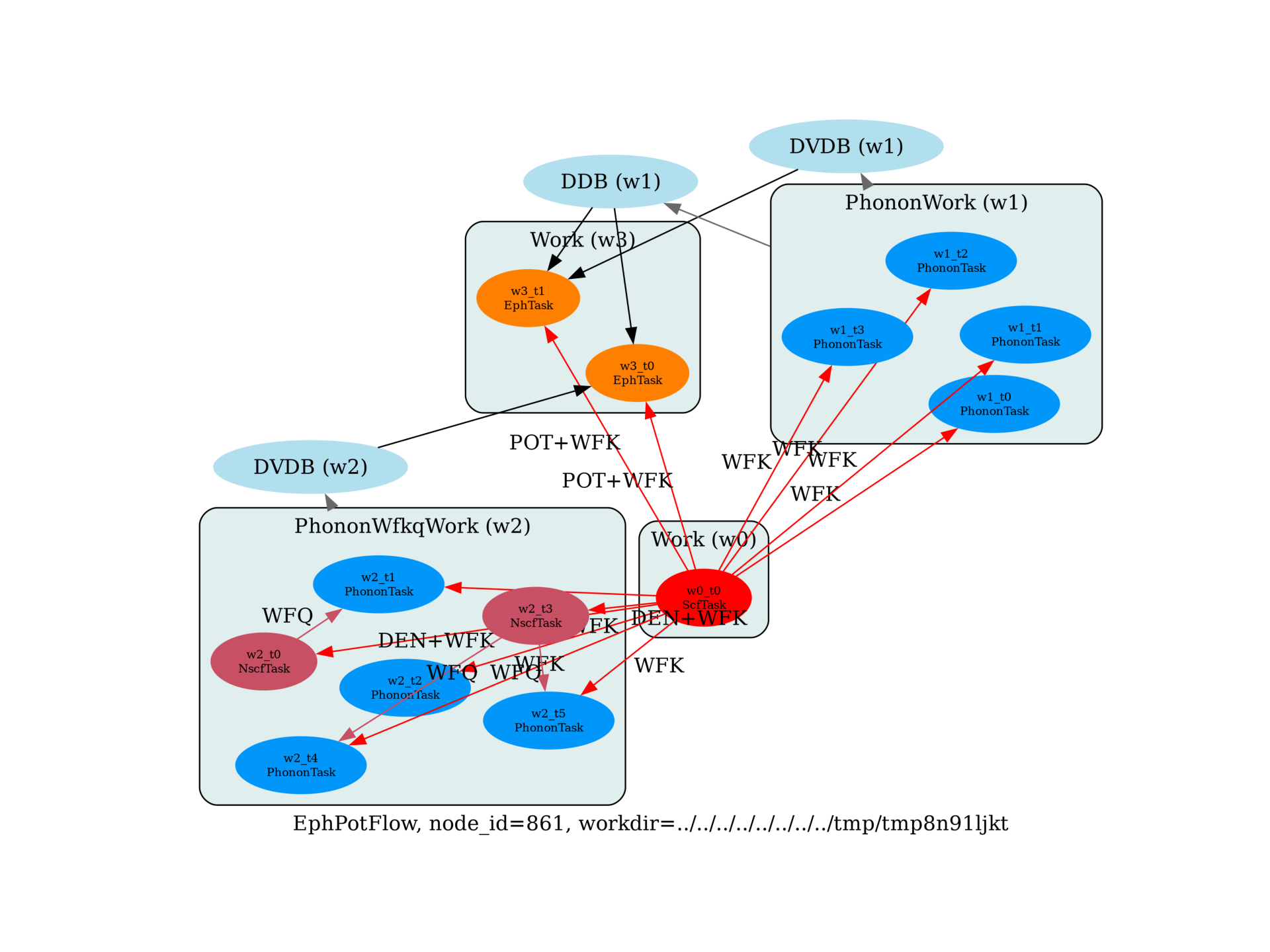Note
Go to the end to download the full example code.
e-ph matrix elements along q-path
This example demonstrates how to compute electron-phonon (e-ph) matrix elements along a specified q-path, either by explicitly calculating the self-consistent potential perturbations (Δq Vscf) for each q-point using ab initio results, or by employing Fourier interpolation techniques starting from a coarse q-point mesh.

import sys
import os
import abipy.abilab as abilab
import abipy.data as abidata
from abipy import flowtk
from abipy.flowtk.eph_flows import EphPotFlow
def build_flow(options):
# Working directory (default is the name of the script with '.py' removed and "run_" replaced by "flow_")
if not options.workdir:
options.workdir = os.path.basename(sys.argv[0]).replace(".py", "").replace("run_", "flow_")
# Build input for GS calculation
# Fe BCC structure
structure = abilab.Structure.from_abistring("""
natom 1
ntypat 1
typat 1
znucl 26
acell 3*5.201879033248
rprim 0.5 0.5 0.5 # BCC primitive vectors (to be scaled by acell)
-0.5 0.5 0.5
-0.5 -0.5 0.5
xred 3*0
""")
pseudos = abidata.pseudos("Fe.psp8")
#pseudos = abidata.pseudos("Fe.upf")
scf_input = abilab.AbinitInput(structure, pseudos=pseudos)
num_ele = scf_input.num_valence_electrons
scf_input.set_vars(
ecut=50,
nsppol=2,
spinat=[0, 0, 6.0],
nband=12,
occopt=7,
tsmear=0.0025,
tolvrs=6.075e-16,
nstep=300,
paral_kgb=0,
vloc_rcut=10,
#toldfe1=5e-13,
#ngfft=[30, 30, 30],
)
# K-point grid
#scf_input.set_kmesh(ngkpt=[24, 24, 24], shiftk=[0, 0, 0])
scf_input.set_kmesh(ngkpt=[2, 2, 2], shiftk=[0, 0, 0])
# q-mesh for phonons.
ngqpt = [2, 2, 2]
#ngqpt = [1, 1, 1]
# List of q-points in reduced coordinates.
qpath_list = [
+0.10000, +0.10000, +0.10000,
+0.00000, +0.00000, +0.00000,
+0.10000, +0.00000, +0.10000,
]
flow = EphPotFlow.from_scf_input(
options.workdir,
scf_input,
ngqpt,
qpath_list,
ndivsm=0, # pass full list of q-points instead of boundaries.
what_to_compute="gkq_qpath", # Important!
with_becs=False, # Metal --> no becs, no dynamical quadrupoles.
with_quad=False,
)
return flow
# This block generates the thumbnails in the Abipy gallery.
# You can safely REMOVE this part if you are using this script for production runs.
if os.getenv("READTHEDOCS", False):
__name__ = None
import tempfile
options = flowtk.build_flow_main_parser().parse_args(["-w", tempfile.mkdtemp()])
build_flow(options).graphviz_imshow()
@flowtk.flow_main
def main(options):
"""
This is our main function that will be invoked by the script.
flow_main is a decorator implementing the command line interface.
Command line args are stored in `options`.
"""
return build_flow(options)
if __name__ == "__main__":
sys.exit(main())
Total running time of the script: (0 minutes 5.899 seconds)